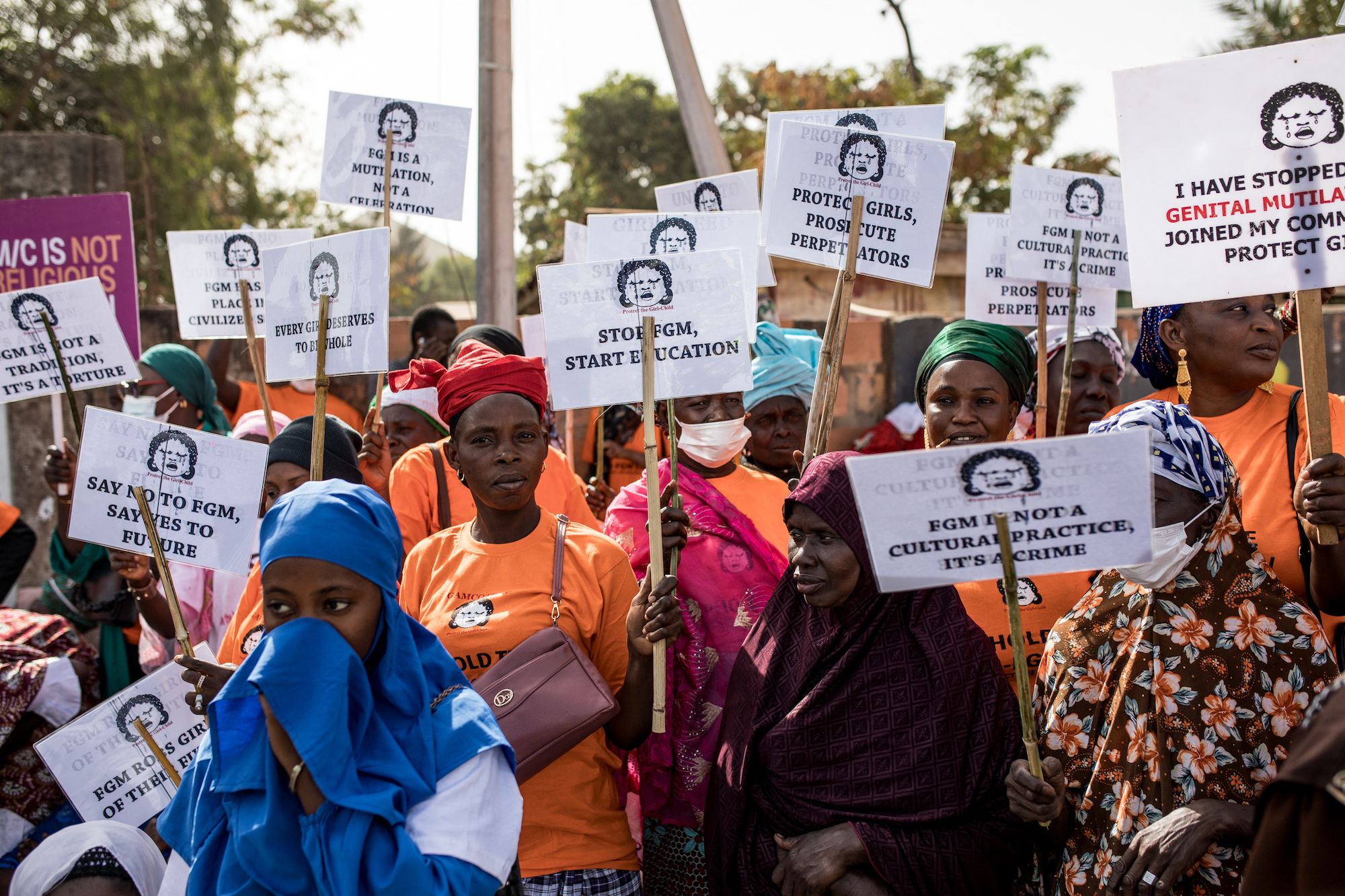Gambiaj.com – (Banjul, the Gambia) –A one-month-old baby girl has died in Wellingara, reportedly from complications linked to Female Genital Mutilation (FGM). The case has sparked renewed calls for enforcement of the national FGM ban from National Assembly member for Old Yundum, Hon. Abdoulie Ceesay.
In a statement, Ceesay expressed “profound sorrow and indignation” over the death, urging authorities to conduct a thorough investigation and prosecute anyone found responsible.

“I am not against religion or culture,” Ceesay said. “But I cannot support FGM. Culture must never be used to justify violence, and faith must never be distorted to permit harm.”
A criminal offence since 2015
FGM was criminalised in The Gambia under the Women’s (Amendment) Act 2015, which prescribes penalties of up to three years in prison or a fine for offenders, and heavier penalties when the act results in death. The country is also bound by international treaties, including the Convention on the Rights of the Child, the African Charter on the Rights and Welfare of the Child, and the Maputo Protocol, all of which require states to eliminate harmful traditional practices.
Despite the legal ban, the practice continues in some parts of the country, often carried out in secrecy. Prosecutions have been rare, with only a handful of cases reaching court since the law came into force.
Recent move to repeal the ban
In March 2024, the National Assembly passed the first reading of a bill seeking to repeal the FGM ban. The proposal, brought by lawmaker Almameh Gibba, argued that the prohibition violated religious freedom. The move drew national and international condemnation from rights groups, religious leaders, and health advocates.
In March 2025, after months of public debate and lobbying, the bill failed to secure enough support in the Assembly to pass its second reading. The law therefore remains in force. Ceesay, whose constituency is Wellingara, said he had a “moral duty to speak for the voiceless” and urged the government to treat the baby’s death as a test of its commitment to child protection.
“This loss must not be forgotten,” he said. “It should be a turning point in our fight to protect every child’s right to life, safety, and dignity.”
Authorities have not yet released official findings on the cause of death.
FGM in The Gambia: Key Facts
Prevalence: According to UNICEF (2022), about 73% of Gambian women aged 15–49 have undergone FGM. Rates are highest in rural areas and among certain ethnic groups.
Legal status: FGM was banned in 2015 under the Women’s (Amendment) Act. Penalties include up to three years in prison or a fine of 50,000 dalasi, with heavier penalties if the act results in death.
Enforcement: Only a small number of prosecutions have occurred since the law was passed. Convictions remain rare, and many cases go unreported due to community pressure and stigma.
Health impacts: The practice can cause severe bleeding, infection, long-term pain, childbirth complications, and, in some cases, death. Infants and young girls face the highest risks.
Recent repeal attempt: In 2024–2025, the National Assembly debated a bill to remove the ban, citing religious grounds. The bill failed at its second reading in March 2025, leaving the ban in place.
International obligations: The Gambia is party to the Convention on the Rights of the Child, the African Charter on the Rights and Welfare of the Child, and the Maputo Protocol, all of which require ending harmful traditional practices.










